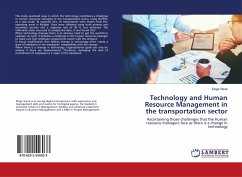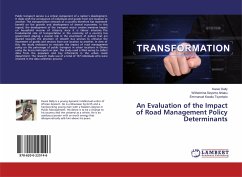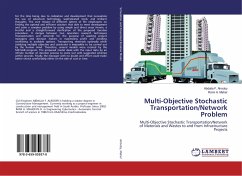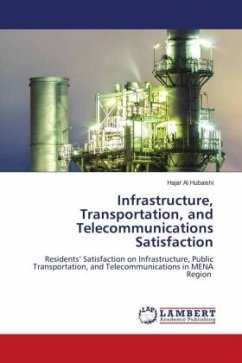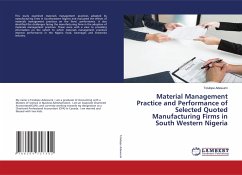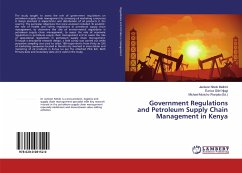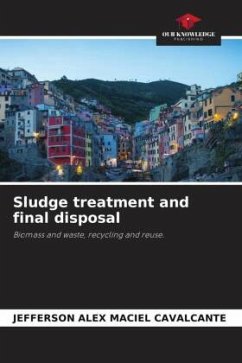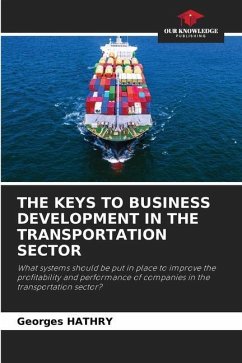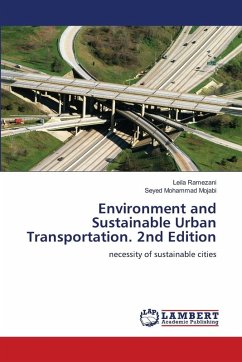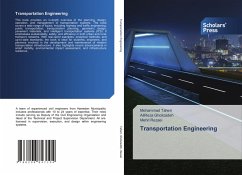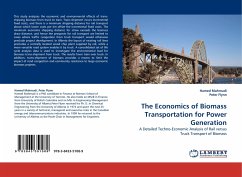
The Economics of Biomass Transportation for Power Generation
A Detailed Techno-Economic Analysis of Rail versus Truck Transport of Biomass
Versandkostenfrei!
Versandfertig in 6-10 Tagen
32,99 €
inkl. MwSt.

PAYBACK Punkte
16 °P sammeln!
This study analyzes the economic and environmental effects of trans-shipping biomass from truck to train. Trans-shipment incurs incremental fixed costs, and there is a minimum shipping distance for rail transport above which lower costs per km offset the incremental fixed costs. The minimum economic shipping distance for straw exceeds the biomass draw distance, and hence the prospects for rail transport are limited to cases where traffic congestion from truck transport would otherwise preclude project development. In Alberta the layout of existing rail lines precludes a centrally located wood ...
This study analyzes the economic and environmental effects of trans-shipping biomass from truck to train. Trans-shipment incurs incremental fixed costs, and there is a minimum shipping distance for rail transport above which lower costs per km offset the incremental fixed costs. The minimum economic shipping distance for straw exceeds the biomass draw distance, and hence the prospects for rail transport are limited to cases where traffic congestion from truck transport would otherwise preclude project development. In Alberta the layout of existing rail lines precludes a centrally located wood chip plant supplied by rail, while a more versatile road system enables it by truck. A consolidated set of life cycle analysis data is used to investigate the environmental load for biomass trans-shipment from truck. The results favor train over truck. In addition, trans-shipment of biomass provides a means to limit the impact of road congestion and community resistance to large economic biomass projects.



